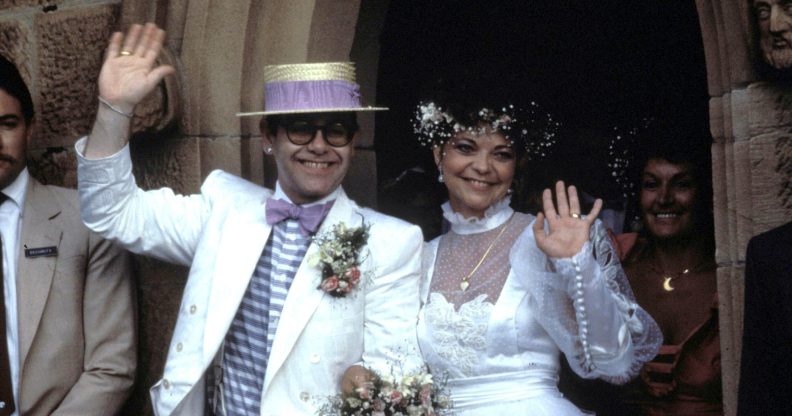Elton John settles bitter £3 million legal battle with ex-wife and agrees never to talk about her publicly again

Elton John and Renate Blauel on their wedding day in 1984 (Patrick Riviere/Getty)
Elton John and Renate Blauel on their wedding day in 1984 (Patrick Riviere/Getty)
Elton John has resolved a bitter £3 million legal dispute with his ex-wife over details of their marriage being featured in his memoir and biopic.
Renate Blauel sued the singer in June claiming “repeated and flagrant” breaches of an agreement they’d made in their divorce deal in 1988.
The pair had agreed not to publicly discuss their four-year marriage or reasons for their separation, Blauel’s lawyers said, yet she featured in both John’s ghost-written memoir Me and his biopic Rocketman.
She asked for an injunction preventing future disclosures as well as damages and costs estimated at £3m. John’s defence team argued that the two projects only discussed incidents that were already public knowledge.
On Wednesday (October 14) a representative for Elton John, 73, released a statement saying the dispute had been settled.
“The parties are happy to announce that they have resolved this case, in a way that acknowledges Renate’s need for privacy,” the statement said. “For her part, Renate acknowledges that Elton has acted in a dignified and respectful way towards her in the last 30 years and has always been happy to help her.
“They will not be discussing each other, or their marriage, in future and will be making no further comment about the case.”
The lawsuit cited five scenes from the film Rocketman in which Blauel was played by actor Celinde Schoenmaker. One scene depicted the couple’s wedding day, while another showed them sleeping in separate bedrooms.
Another showed John in a group therapy session discussing the failure of his marriage “on account of his unhappiness and in particular his sexuality”, the claim read.
Documents filed by Blauel’s legal team reveal that she adopted a new identity and went into hiding in a British village in an attempt to shed her connection to the singer.
Her lawyers said the disclosures had exacerbated longstanding mental health problems, including “depression and anxiety”, and that her condition was “exacerbated by press interest in her” following the publication of his memoir.

